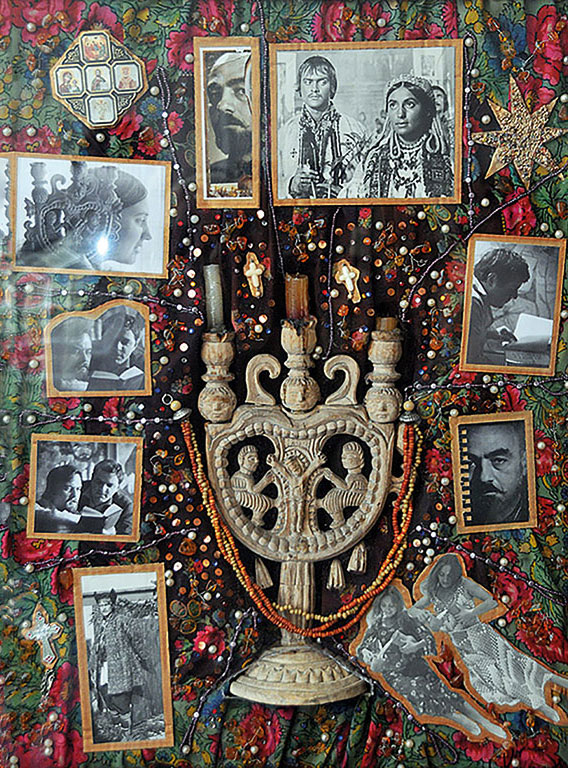Archives 2016
“Shadows of Forgotten Ancestors”
It requires great courage to raise the issue of national theatres at a festival, which is such an important, moreover, a very central issue in Europe. This is a very complex subject: the task that a national theatre aims and undertakes varies from country to country on one hand, because of the differences in their historical background, but on the other hand, because of the actual context. There is no regulation or recipe to provide guidance for such a situation. The tasks of national theatres with such outstanding status are determined by the political and cultural environment, which is very characteristic, completely variable, moreover, always in transition at the same time. A festival may first of all promote the clear statement of what there is to be done rather than a comprehensive solution to the problems.[*]
However, if exclusively national theatres were invited to such festivals without contrasting their operations with the practices of “emerging” or simply independent theatres, the national theatres would dim the bigger part of the outstandingly colourful palette of theatres where constantly new forms are coming to existence questioning even the consistence of theatres. The MITEM festival had not made this mistake, since besides the Thalia Theater, the Burgtheater, the Piccolo Teatro of Milan and the Budapest National Theatre etc. there were also some starters (Piccola Familia) invited to the event. A national troupe was represented by Odin as the representative of the historic movement of the Third Theatre. We could also see some institutions open to international co-operation such as the Théatre Vidy-Lausanne presenting Apollo Cinema directed by Matthias Langhoff, who despite his German origin, opted for French citizenship. A school adaptation by MHAT of Moscow could also be seen.
Starting off with the issue regarding the existence and functions of national theatres the role of language or any languages spoken in a given country, in addition, the composition of audiences in countries where multinational families live can be thought- provoking. Furthermore, the cultural traditions of a country (or capital city) or their relationship to history which is manifested through the theatre as a community art form may be discussed. As the connection established and maintained by a theatre with a nation and a republic as theoretical existences may as well give food for thought. Moreover, it may also be interesting to deal with the meaning of “Volkstheater” or the function of a troupe that is intended to reflect society (ages and differences in social background etc…).
Undoubtedly every national theatre should select the forms of dialogues in their most adequate ways with respect to their traditions and with regards to their material and intellectual heritage, especially in such an imminent era like our current times which are loaded with so many transformations and are endangered by uniformity

A theatre is regarded as such a medium of artistic and social life at the crossing point of the past and present whose main role is to cultivate a lively relationship with the “shadows of forgotten ancestors” (this poetic expression was inspired by the Russian and Ukrainan translation of the movie title of The Wild Horses of Fire by Szergej Paradzsanov). The festival panel discussion with the participation of Macedon, Hungarian, Algerian, Russian and French directors had turned out to be very exciting and forward looking since it focuses on this inevitable dialogue, which stands diametrically opposed to all kinds of museum conservation of traditions and made it obvious that national theatres may as well get integrated into any multinational local or post-colonial contexts, or even in a globalised multicultural environment in various ways. During the dialogue there were talks about the receptivity of national theatres regarding other nations’ cultures, the role of invitations of foreign guest directors in the enrichment of a troupe’s artistic development, furthermore, how this practice may be made more flexible while it was pointed out that theatres should be aware of their special expertise. At the same time attention was drawn to the danger that lies in national theatres’ proximity to the political power that directly supports their operations.
The Budapest National Theatre provided evidence of its great openness and receptivity by the organisation of the MITEM festival by setting up meetings, panel discussions and workshops (courses by A. Vasziljev and A. Levinszkij) as complements to the theatrical performances of the programme. There was also a colloquium featuring V. Mejerhold’s pioneering working life as a director who at the beginning of 20th century Russia had thought over the issues of a national theatre by studying how it historically integrated foreign experiences, moreover, he came up with the idea of how this institution could be made even more attractive by embracing oriental theatrical traditions.
The performance of The Eternal House based on Jordan Plevnes multi-item play by the Macedonian National Theatre, which opened in 2013, was very impressive (despite the problems which unavoidably arise during such a tour). It could also be noticed how David Doiasvili, who was invited as a director by the Budapest National Theatre, could take advantage of the special features of the transformable stage that were applied in the astonishing performance of A Midsummer Night’s Dream. It is a very versatile machinery whose magical playfulness inevitably conjured up images of those rhythmical spaces which Adolphe Appia had been dreaming of in her graphic art. What I was personally most eagerly interested in at this MITEM beyond the exploration of Hungarian playwrights is the relationship between directing and music. In this respect I found the Ukrainian Dakh Daughters group directed by Vlad Troickij very promising. The film adaptation of The Boy Changed into a Stag (Szarvassá változott fiú) helped me to get acquainted with a Hungarian poet called Ferenc Juhász as well as two amazing actors namely Mari Törőcsik and Zsolt Trill. I saw some mysterious and “grotesque” pictures while I sensed a very rich world of music owing to the combination of Schnittke, Martinov and Jordi Saval. That is why I am so sorry for not being able to see Attila Vidnyánszky’s stage adaptation, which he based this very original film adaptation on.
Translated from French original into Hungarian by Zsófia Rideg
Translated from Hungarian into English by Anikó Kocsis
Béatrice Picon-Vallin: “Shadows of Forgotten Ancestors”
National Theatres in the 21st Century
The presentation at the 2015 MITEM conference on Meyerhold by theatre historian professor Béatrice Picon-Vallin was published in the September issue of Szcenárium. The present paper, also a contribution to a professional programme (“National Theatres in the 21st Century”), discusses how the special functions of national theatres are to be rephrased in the 21st century. In her view, an event like MITEM may first of all promote the clear statement of what there is to be done rather than the comprehensive solution of the problems. She regards the festival panel discussion, with the participation of directors from Macedonia, Hungary, Algeria, Russia and France, exciting and forward-looking on account of its focus on the inevitable dialogue which nations and ethnic groups need to engage in with their own past and special tradition, and a most efficient framework of which is provided right by the theatre. This approach, she says, stands diametrically opposed to the one which looks upon the function of national theatres as some museum conservation of tradition. The roundtable has proved to her that the particular national theatres may be integrated into a multinational local context or a post-colonial milieu or even a globalised multicultural environment in different manners. She considers it a positive development that the risks involved in national theatres’ proximity to the political power which directly supports their operation have been formulated at this forum.
[*] A roundtable with the same title was held at MITEM on 18 April, 2015.
(15 April 2016)











